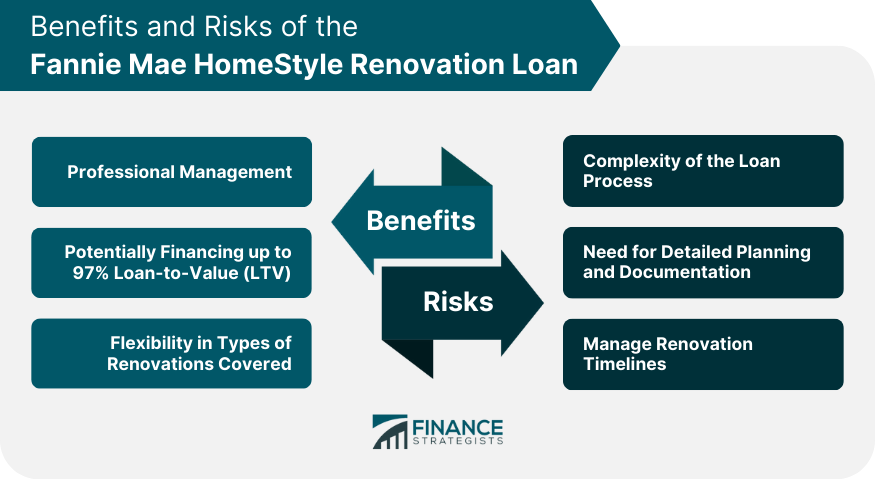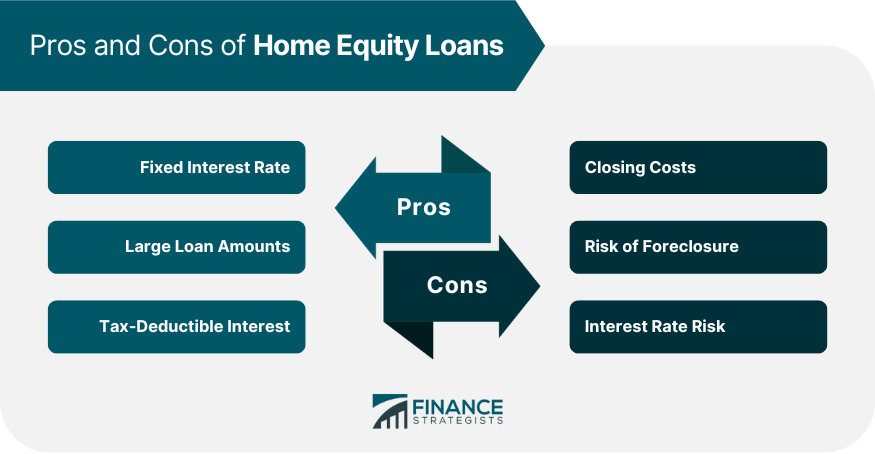Home improvement loans can be a great way to finance renovations or repairs, but are they hard to get? Let’s take a closer look at the process and find out.
When it comes to obtaining a home improvement loan, the difficulty often depends on your individual circumstances. Lenders will consider factors such as your credit score, income, and the value of your home. If you have a solid financial profile and a good credit history, getting a home improvement loan may be relatively straightforward. However, if you have a low credit score or a high debt-to-income ratio, you may face greater challenges in securing a loan.

What Credit Score Do You Need for a Renovation Loan?
When it comes to securing a renovation loan, your credit score plays a crucial role in determining your eligibility and the terms you will receive. But what credit score do you actually need to qualify for a renovation loan? Let’s explore this important question.
In general, lenders prefer borrowers with higher credit scores as it indicates a lower risk of defaulting on loan payments. However, specific credit score requirements can vary depending on the lender and the type of renovation loan you are applying for. It’s essential to note that while a higher credit score is advantageous, a lower score does not automatically disqualify you from obtaining a renovation loan.
How long is the average home improvement loan?
Home improvement loans are a popular financing option for homeowners looking to make renovations or upgrades to their homes. These loans provide the necessary funds to cover the costs of home improvement projects such as remodeling a kitchen, adding an extra bedroom, or installing energy-efficient appliances. One question that often arises when considering a home improvement loan is the length of time it takes to repay the loan.
The average length of a home improvement loan can vary depending on several factors. These factors include the borrower’s credit history, the amount of the loan, and the lender’s terms and conditions. Generally, home improvement loans can have repayment terms ranging from a few months to several years. The length of the loan is typically determined by the borrower’s ability to repay the loan and the lender’s requirements.
Are renovation loans worth considering?
When it comes to renovating your home, one of the biggest challenges can be financing the project. This is where renovation loans come in. These loans are specifically designed to help homeowners fund their renovation projects, providing them with the financial assistance they need to make their home improvement dreams a reality.
Renovation loans can be a great option for homeowners who don’t have the funds upfront to cover the costs of their home improvement project. These loans offer a variety of benefits, including:
- Flexible repayment terms
- Lower interest rates compared to other forms of financing
- Potential tax benefits
- Ability to increase the value of your home
Overall, renovation loans can be a valuable tool for homeowners looking to improve their living space. They provide the necessary funds and flexibility to complete your home renovation project without draining your savings or resorting to high-interest loans. So, if you’re considering a home improvement project, it’s worth exploring the option of a renovation loan.
Are Home Improvement Loans Difficult to Obtain?
Many homeowners are interested in making improvements to their homes, such as renovating the kitchen or adding an extra bedroom. However, the cost of these projects can often be a barrier to getting them done. That’s where home improvement loans come in. These loans provide homeowners with the funds they need to make their desired improvements, but they can be expensive. So, why are home improvement loans so pricey?
There are a few reasons why home improvement loans tend to have higher interest rates compared to other types of loans. Firstly, these loans are usually unsecured, meaning they don’t require collateral like a house or car. This lack of collateral increases the risk for lenders, as they have no asset to claim if the borrower fails to repay the loan. To compensate for this risk, lenders charge higher interest rates on home improvement loans.

Are Home Improvement Loans Difficult to Obtain with Bad Credit?
Many individuals with bad credit may wonder if it is challenging to secure home improvement loans. In this article, we will explore the requirements and options available for individuals with poor credit who are seeking funding for home improvement projects.
Home improvement loans are financial products designed to help homeowners fund renovations, repairs, or upgrades to their properties. These loans can be used for various purposes, such as remodeling a kitchen, adding a room, or improving energy efficiency. However, individuals with bad credit may face some difficulties when trying to obtain these loans.
Are government loans easy to obtain for home remodeling?
Government loans for home remodeling are a popular option for homeowners looking to make improvements to their property. These loans are designed to provide financial assistance to individuals who want to renovate or upgrade their homes. But are these loans easy to get?
The answer to this question depends on several factors. While government loans do offer certain advantages, such as lower interest rates and flexible repayment terms, they may not be easily accessible for everyone. The eligibility requirements for these loans can vary, and applicants may need to meet specific criteria set by the government or lending institutions.
How can I easily calculate my home improvement loan?
Getting a home improvement loan is a great way to finance your renovation projects and enhance the value of your property. But are home improvement loans hard to get? Let’s explore the process and advantages of home improvement loans to understand how easily you can calculate and obtain one.
A home improvement loan calculator is a useful tool that allows you to estimate the potential cost and monthly payments of your loan. It takes into account factors such as the loan amount, interest rate, and repayment term to provide you with an accurate calculation. By using a home improvement loan calculator, you can determine how much you can afford to borrow and plan your budget accordingly.
Advantages of using a home improvement loan calculator
Using a home improvement loan calculator offers several advantages:
- Accurate estimation: Calculating your loan using a home improvement loan calculator ensures that you have an accurate estimation of the potential costs and monthly payments. This allows you to plan your budget effectively and avoid any surprises.
- Comparison shopping: With a loan calculator, you can easily compare different loan options and lenders. By inputting different interest rates and repayment terms, you can see how they impact your monthly payments and choose the best loan option for your needs.
- Budget planning: By knowing your estimated monthly payments, you can plan your budget accordingly and ensure that you can comfortably afford the loan. This helps you avoid any financial strain and make informed decisions.
Are Zero Interest Home Improvement Loans Hard to Get?
Zero interest home improvement loans are a type of loan that allows homeowners to borrow money for making improvements or renovations to their homes without paying any interest on the loan amount. These loans are designed to provide financial assistance to homeowners who want to enhance the value, functionality, or aesthetics of their properties.
When it comes to obtaining zero interest home improvement loans, the process may vary depending on the lender and the borrower’s financial situation. While some lenders may have strict eligibility criteria and require a good credit score, others may offer more flexibility and consider other factors such as income and existing debts. However, compared to traditional loans, zero interest home improvement loans may be relatively easier to get because they often have fewer requirements and lower interest rates.
Are home improvement loans difficult to obtain?
Home improvement loans are a popular financing option for homeowners looking to make renovations or upgrades to their property. These loans provide individuals with the funds they need to complete projects such as kitchen remodels, bathroom renovations, or even adding an addition to their home.
When it comes to obtaining a home improvement loan, many people wonder if it is a difficult process. The truth is, while each lender may have different requirements, home improvement loans are generally accessible to borrowers. Lenders typically evaluate factors such as credit score, income, and the value of the property when determining loan eligibility.
Are Home Improvement Loans Difficult to Obtain in Texas?
Home improvement loans can be a valuable tool for homeowners in Texas looking to renovate or upgrade their properties. However, many individuals may wonder if these loans are hard to obtain in the Lone Star State. In this article, we will explore the availability and accessibility of home improvement loans in Texas.
Home improvement loans are specifically designed to provide homeowners with the necessary funds to make improvements or upgrades to their properties. These loans can be used for a variety of purposes, including remodeling kitchens, adding extra rooms, or renovating bathrooms. They offer homeowners the opportunity to enhance the value and functionality of their homes without having to rely solely on personal savings or credit cards.
What are the current home improvement loan rates?
Home improvement loan rates refer to the interest rates charged on loans specifically designed for funding home improvement projects. These rates determine the cost of borrowing and can vary depending on various factors such as the borrower’s credit score, loan amount, and the lender’s policies. Knowing the current home improvement loan rates is crucial for homeowners who are planning to renovate or upgrade their properties.
The rates for home improvement loans can be fixed or variable. Fixed rates remain constant throughout the loan term, providing stability and predictability in monthly payments. On the other hand, variable rates may fluctuate based on market conditions, potentially resulting in lower or higher payments over time. It’s important for borrowers to consider their financial situation and risk tolerance when choosing between fixed and variable rates.
What are the best home improvement loans?
Home improvement loans are a type of financing that can help homeowners fund renovation or remodeling projects. These loans are specifically designed to provide borrowers with the funds they need to make improvements to their homes, such as adding a new room, upgrading the kitchen, or renovating the bathroom. The best home improvement loans offer competitive interest rates, flexible repayment terms, and a streamlined application process.
Whether you’re planning a small DIY project or a major renovation, finding the right home improvement loan can make all the difference. These loans can be obtained from various lenders, including banks, credit unions, and online lenders. The best home improvement loans are typically secured loans, meaning they require collateral, such as your home or other assets, to secure the loan. This collateral helps reduce the risk for lenders, which can result in lower interest rates and better loan terms for borrowers.
In conclusion, obtaining a home improvement loan can be a straightforward process if you meet the necessary requirements. While it may require some paperwork and research, it is not necessarily hard to get.
To increase your chances of approval, it is important to have a good credit score, stable income, and sufficient equity in your home. Additionally, familiarize yourself with different loan options and compare interest rates and terms from various lenders.







